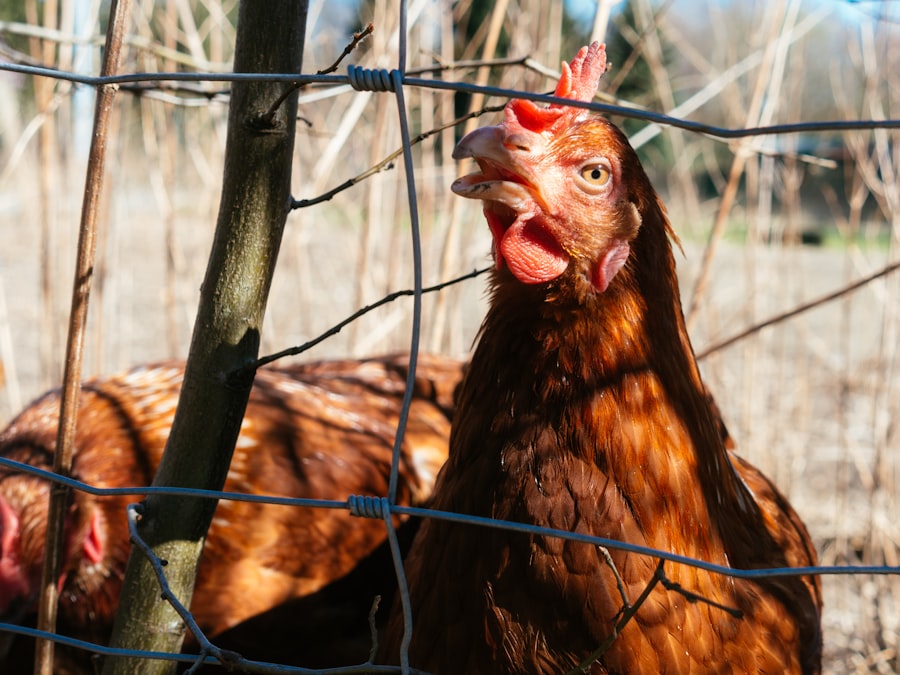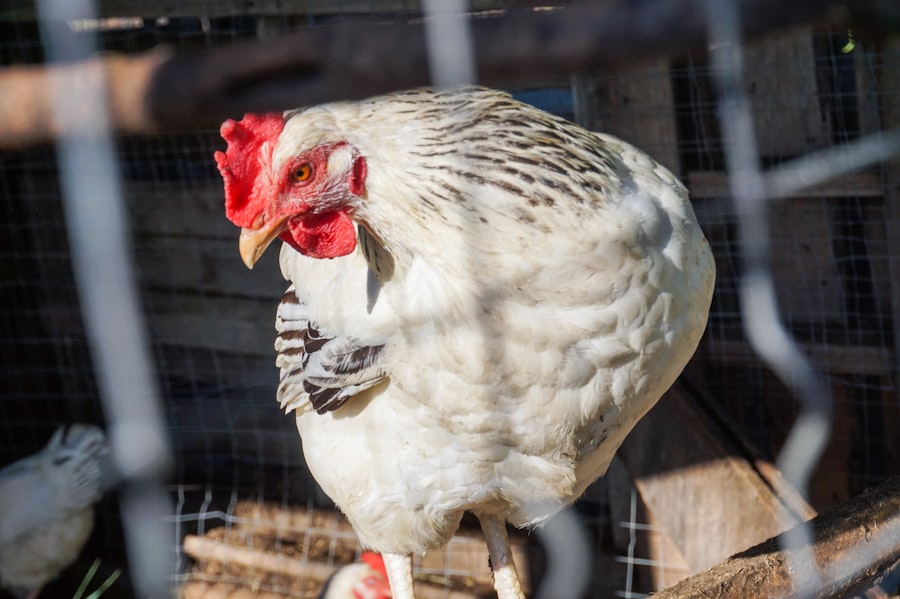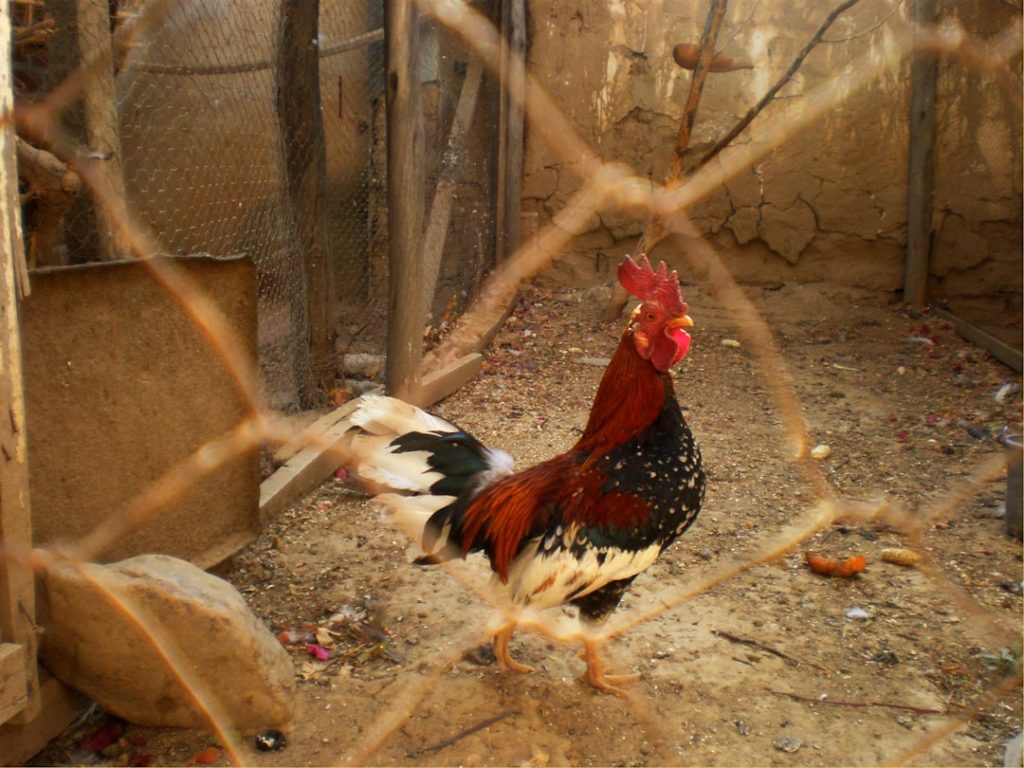Chickens are naturally inquisitive and foraging birds that constantly peck and scratch the ground in search of food. Their strong exploratory instinct and attraction to potential food sources can present challenges when planting grass seed in areas accessible to them. Chickens may view grass seeds as a food source and consume them before germination occurs.
The social nature of chickens means they often follow the behavior of their flock mates. If one chicken discovers grass seed, others are likely to join in, potentially increasing the risk to newly planted areas. Understanding these natural behaviors is essential when developing strategies to protect grass seed from chickens.
Chickens also exhibit habitual behavior patterns. Once they identify a food source, they tend to return to it repeatedly. This means that even if initial deterrence measures are successful, ongoing vigilance may be necessary to prevent chickens from returning to the seeded area and causing damage.
Recognizing these behavioral traits can help in formulating effective long-term protection strategies for newly planted grass seed in chicken-accessible areas.
Table of Contents
- 1 Choosing the right grass seed for your yard
- 2 Creating a barrier to protect the grass seed
- 3 Providing alternative sources of food for the chickens
- 4 Supervising the chickens during the seeding process
- 5 Using deterrents to discourage the chickens from eating the grass seed
- 6 Monitoring and adjusting your approach as needed
- 7 FAQs
- 7.1 What are some methods to keep chickens from eating grass seed?
- 7.2 Why do chickens eat grass seed?
- 7.3 Is it harmful for chickens to eat grass seed?
- 7.4 How can I protect my grass seed from chickens without harming them?
- 7.5 Are there any natural deterrents to keep chickens away from grass seed?
Key Takeaways
- Chickens are naturally attracted to scratching and pecking at the ground, which can disrupt newly planted grass seed.
- When choosing grass seed for your yard, consider factors such as climate, soil type, and sun exposure to ensure the best growth.
- Creating a physical barrier, such as a temporary fence or netting, can help protect the grass seed from being disturbed by chickens.
- Providing alternative sources of food, such as scratch grains or mealworms, can help distract the chickens from eating the grass seed.
- Supervising the chickens during the seeding process can help prevent them from accessing the grass seed and causing damage.
Choosing the right grass seed for your yard
Considering Environmental Factors
Additionally, consider the amount of sunlight and water that your yard receives, as this will also impact the success of your grass seed.
Durability and Resilience
For areas with heavy foot traffic or where chickens are present, it is advisable to choose a durable and resilient grass seed that can withstand the wear and tear of both human and animal activity. Look for grass varieties that are known for their ability to recover quickly from damage, such as Kentucky bluegrass or perennial ryegrass.
Aesthetic Appeal
It is also important to consider the aesthetic appeal of the grass seed you choose. While durability is important, you also want your yard to look attractive and well-maintained. Consider the color and texture of the grass seed, as well as its ability to blend in with the existing landscape.
By carefully selecting the right grass seed for your yard, you can set yourself up for success and ensure that your lawn remains healthy and beautiful despite the presence of chickens.
Creating a barrier to protect the grass seed

One effective way to protect grass seed from chickens is to create a physical barrier that prevents them from accessing the area where the seeds have been planted. This can be achieved by installing a temporary fence or using chicken wire to enclose the seeded area. Make sure that the barrier is tall enough to prevent the chickens from reaching over or flying over it, and secure it firmly in place to prevent any gaps or openings that the chickens could exploit.
Another option is to use garden fabric or netting to cover the seeded area. This material allows sunlight and water to reach the seeds while creating a barrier that deters chickens from pecking at the ground. Be sure to secure the fabric or netting firmly in place so that it does not become dislodged by wind or other environmental factors.
In addition to physical barriers, consider using natural deterrents such as citrus peels or garlic cloves scattered around the seeded area. Chickens are sensitive to strong smells and may be deterred by these natural odors. By creating a barrier that prevents chickens from accessing the grass seed, you can protect your investment and ensure that the seeds have a chance to germinate and grow undisturbed.
Providing alternative sources of food for the chickens
In order to prevent chickens from eating grass seed, it is important to provide them with alternative sources of food that will satisfy their natural foraging instincts. By offering a diverse range of treats and supplemental feed, you can help redirect their attention away from the newly planted seeds and reduce the likelihood of them causing damage. Consider scattering scratch grains or mealworms in a designated foraging area away from the seeded section of your yard.
This will encourage the chickens to focus their attention on these alternative food sources rather than searching for seeds in the ground. Additionally, providing access to fresh greens such as lettuce or kale can help satisfy their desire to peck and scratch while minimizing their impact on the grass seed. Another option is to hang a treat dispenser or puzzle feeder in the chicken coop or run.
These devices can be filled with grains or other treats, encouraging the chickens to engage in natural foraging behaviors while keeping them occupied and entertained. By providing alternative sources of food and enrichment, you can help reduce the likelihood of chickens turning their attention to the grass seed in your yard.
Supervising the chickens during the seeding process
During the initial stages of planting grass seed, it is important to closely supervise your chickens to prevent them from accessing the seeded area. This may involve temporarily confining them to a different part of the yard or coop while the seeds have a chance to take root. By closely monitoring their behavior and whereabouts, you can intervene quickly if they show any signs of interest in the newly planted seeds.
If possible, consider scheduling the seeding process during a time when you can dedicate extra attention to supervising your chickens. This may involve enlisting the help of family members or friends to keep an eye on the chickens while you focus on planting and protecting the grass seed. By working together as a team, you can ensure that the chickens remain under close supervision and do not have an opportunity to cause damage.
In addition to direct supervision, consider using visual deterrents such as scarecrows or reflective tape near the seeded area. These visual cues can help deter chickens from approaching the seeds while also serving as a reminder for you to keep an eye on their behavior. By supervising your chickens closely during the seeding process, you can minimize the risk of them eating the grass seed and increase the likelihood of successful germination and growth.
Using deterrents to discourage the chickens from eating the grass seed

Motion-Activated Deterrents
One effective method to prevent chickens from eating grass seed is to use motion-activated sprinklers near the seeded area. When a chicken approaches, the sudden burst of water will startle them and discourage them from returning to that location.
Noise Deterrents
Another option is to use noise deterrents such as wind chimes or clanging pots and pans near the seeded area. Chickens are sensitive to sudden loud noises and may be deterred from approaching if they associate that area with an unpleasant sound. By strategically placing noise deterrents around the seeded section of your yard, you can help discourage chickens from pecking at the ground.
Natural Repellents
Additionally, consider using natural repellents such as vinegar or hot pepper spray applied around the perimeter of the seeded area. These strong scents can deter chickens from approaching while also serving as a reminder for them to stay away.
Monitoring and adjusting your approach as needed
Once you have implemented strategies for protecting your grass seed from chickens, it is important to monitor their effectiveness and make adjustments as needed. Regularly check on the condition of the seeded area and look for any signs of chicken activity or damage. If you notice any areas where chickens have been pecking or scratching, take immediate action to reinforce barriers or apply additional deterrents.
In addition, observe the behavior of your chickens and look for any patterns or changes in their foraging habits. If you notice that they are consistently returning to a specific area despite your efforts to deter them, consider adjusting your approach or trying new methods for protecting the grass seed. By remaining vigilant and responsive, you can adapt your strategy as needed and increase the likelihood of successful grass growth in your yard.
Finally, be patient and persistent in your efforts to protect your grass seed from chickens. It may take time and experimentation to find the most effective combination of deterrents and protective measures. By staying committed to safeguarding your investment, you can ultimately enjoy a lush and healthy lawn that is free from damage caused by curious chickens.
If you’re struggling with keeping chickens from eating your grass seed, you may also be interested in learning how to build a chicken coop and run to keep your chickens contained. Check out this article on chicken coop run plans for some helpful tips and ideas on creating a safe and secure space for your feathered friends. Additionally, you can explore large chicken coop ideas and how to insulate a chicken coop to ensure your chickens are comfortable and well-cared for.
FAQs
What are some methods to keep chickens from eating grass seed?
Some methods to keep chickens from eating grass seed include using chicken wire to create a barrier, using a chicken tractor to move the chickens to a different area, and providing alternative sources of food to distract the chickens.
Why do chickens eat grass seed?
Chickens are natural foragers and will eat grass seed as part of their diet. They may also be attracted to the fresh, tender shoots of grass seed.
Is it harmful for chickens to eat grass seed?
In moderation, eating grass seed is not harmful for chickens. However, if they consume large quantities, it can lead to digestive issues.
How can I protect my grass seed from chickens without harming them?
You can protect your grass seed from chickens by using non-toxic barriers such as chicken wire or by providing alternative sources of food to distract the chickens.
Are there any natural deterrents to keep chickens away from grass seed?
Some natural deterrents to keep chickens away from grass seed include planting herbs or flowers that chickens dislike, such as lavender or marigolds, and using natural repellents such as citrus peels or vinegar.
Meet Walter, the feathered-friend fanatic of Florida! Nestled in the sunshine state, Walter struts through life with his feathered companions, clucking his way to happiness. With a coop that’s fancier than a five-star hotel, he’s the Don Juan of the chicken world. When he’s not teaching his hens to do the cha-cha, you’ll find him in a heated debate with his prized rooster, Sir Clucks-a-Lot. Walter’s poultry passion is no yolk; he’s the sunny-side-up guy you never knew you needed in your flock of friends!







